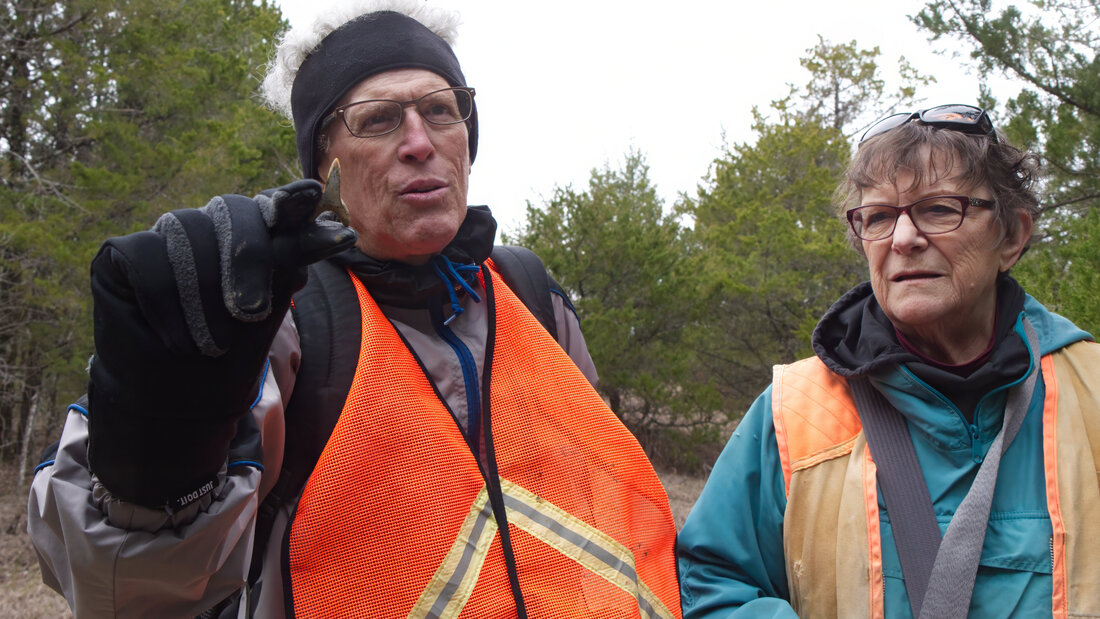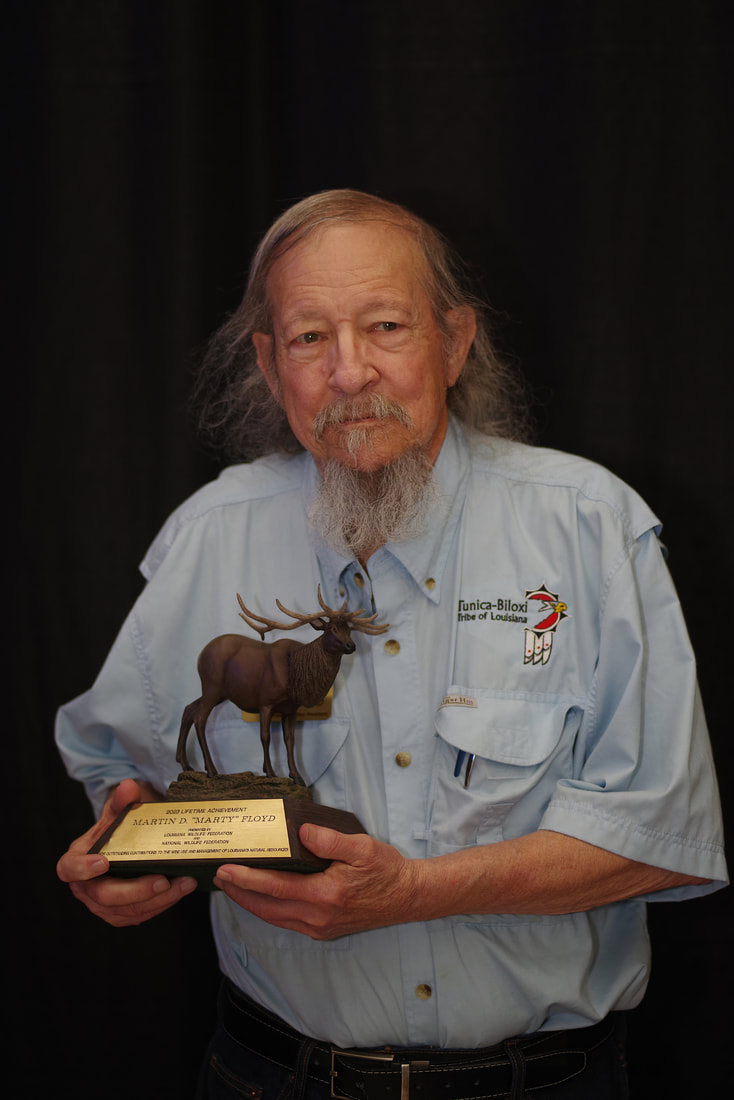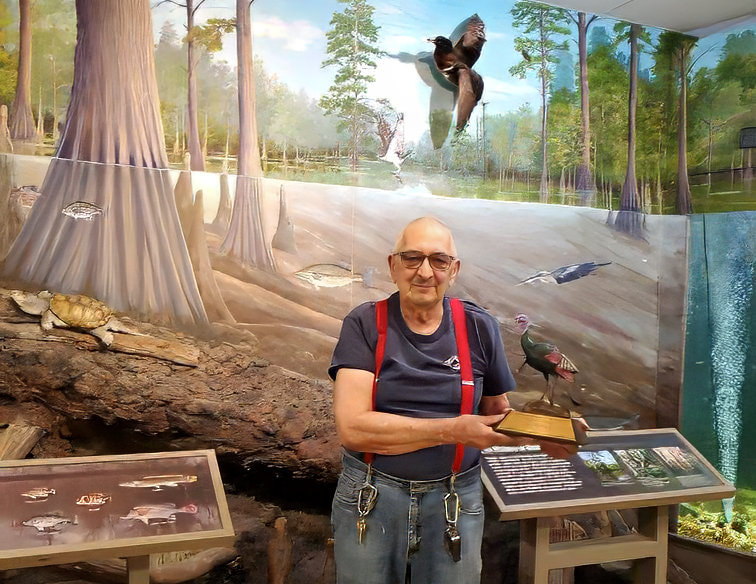|
By C.Paxton Apologies in advance for any errata written here are my own. 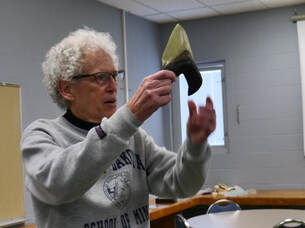 Louisiana Master Naturalists Northeast enjoyed an excellent Geology Workshop February 17th, 2024, given by Dr. Gary Stringer, ULM Professor Emeritus of Geology. The subject was "The Prehistoric Megatoothed Sharks of Louisiana" and his illustrated talk was informative and highly stimulating! Dr. Stringer has discovered a great many marine fossils in the course of his research including great sharks' teeth, the spines and crushing teeth of rays, the ear-stones (Otoliths) of fish and the bones of huge prehistoric whales! His publications have firmly established that the Yazoo Clay deposits in the Copenhagen Hills near Columbia are one of the Southeast's richest repositories of Late Eocene fossils including the remains of great sharks and whales, the apex predators of the age! Our lecture conveyed a great introduction to the taxonomy, range and ecological interactions of the giant prehistoric sharks that inhabited the area that we know as Louisiana in the late Eocene. It was fascinating to focus on the physiological characteristics of the teeth. 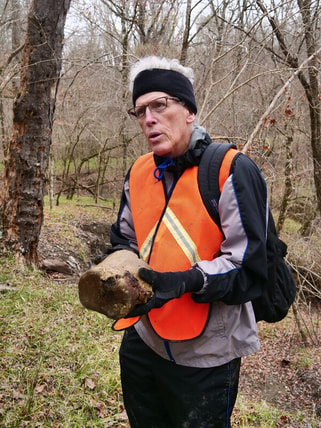 Dr. Gary Stringer holding the caudal vertebra of an extinct Basilosaurid Whale, Basilosaurus cetoides that he had just found! Dr. Gary Stringer holding the caudal vertebra of an extinct Basilosaurid Whale, Basilosaurus cetoides that he had just found! The classroom portion was conducted at ULM's Hanna Hall, and the field trip was held with special permission at Nature Conservancy Louisiana's Copenhagen tract, Caldwell Parish, not far from the Ouachita River. Despite low temperatures and high winds, it was a great success! Our group leaders wore Orange vests and the fossils were found on the surface without disturbance of the soil or vegetation. Dr. Stringer was kind and thorough in his examination and identification of the specimens that we found, he also kindly presented LMN-NE with some of his finds for the display that will enrich the group's outreach events! Overview: The invertebrate and vertebrate fossils were collected on the surface with no disturbance of plants or soil. The invertebrate fossils were more numerous, which is typical. All invertebrate and vertebrate specimens recovered have been previously described from the site by various researchers and studies, i.e., no new species were found. Furthermore, no unique or rare specimens were recovered on the field trip. The fossils were common and abundant. At the conclusion of the field trip, Dr. Stringer identified the findings of each participant. Results are given below for the entire group including Dr. Stringer. Taxa and number found: Invertebrates Coelenterates (corals) Balanophyllia irrorata (39 specimens, the most abundant coral at the site) Flabellum cuneiforme (27 specimens) Endopachys maclurii (2 specimens) Archohelia sp. (3 specimens) Bivalves (shells): Venericardia planicosta (24 specimens) Cubitostrea trigonalis (46 specimens, primarily broken; oyster shells) Glycymeris sp. (1 specimen) Chlamys nupera (2 specimens, broken) Thaumastoplax sp. (2 specimens) Atrina jacksoniana (3 specimens; internal casts) Teredo sp. (10 specimens) Gastropods (shells) Calyptraphorus relatus (2 specimens) Clavilithes humerosus (4 specimens) Architectonica alveata (1 specimen) Athleta petrosa (1 specimen) Pseudoliva vetusa (1 specimen, broken) Turritella sp. (14 very small specimens) Scaphopods (tusk shells) Dentalium mississippiense (1 specimen) Trace fossil Burrow (unknown origin) (2 specimens) Vertebrate remains Myliobatis (1 small specimen of crusher tooth of eagle ray) Shark coprolites (10 specimens; fossilized fecal material) Shark teeth (4 specimens; 3 of Isurus and 1 of Carcharhinus) Basilosaurus cetoides (whale remains; several small pieces of non-identifiable bone; 2 small pieces of ribs; one partially complete vertebra) Zygorhiza kochii (small whale at Copenhagen; possible part of centrum of a small vertebra) Some of the particles that washed off our specimens included the following microfossils that Dr. Stringer kindly identified as Foraminifera, commonly called 'Forams'; he explained these were amoebae that could secrete calcium carbonate.
0 Comments
3/10/2024 0 Comments Louisiana Wildlife Federation Awards Dr. Alex Kolker Conservationist of the Year!
The Louisiana Master Naturalists would like to extend our congratulations to, and celebration of, the eight Conservation Achievement Awards winners for 2003. The following information is based on an LWF Press Release (BATON ROUGE, February 24, 2024). The winners were carefully selected by a panel of independent judges with expertise in a wide range of conservation fields! The Louisiana Wildlife Federation will present the 58th Conservation Achievement Awards on April 12 Coastal Researcher, Dr. Alex Kolker has been named 2023 Conservationist of the Year! Alex Kolker, PhD, of New Orleans, and associate professor at the Louisiana Universities Marine Consortium (LUMCON), specializing in oceanography, geology, and climate science, has been named 2023 Conservationist of the Year by the Louisiana Wildlife Federation. Dr. Kolker recently led the charge for collecting data to better understand the continuing evolution of Neptune Pass in the lower Mississippi River and related land-building. He also developed a new tool showing the sources of major greenhouse emissions and other pollutants in the state. “Dr. Kolker’s contribution to the research needed to better understand how we can use the Mississippi River to build land and the potential local impacts from climate change continues to be crucial in planning efforts,” said LWF Executive Director Rebecca Triche. “He is also a powerful and effective science communicator using social media to engage people.” The Conservationist of the Year Award is presented annually to the person, business or organization deemed to have made the most outstanding contribution toward the protection, wise use, and enjoyment of Louisiana’s natural resources from among nominees submitted by the public. Conservationist of the Year is the most prestigious conservation award in Louisiana. Along with recognizing the 2023 Conservationist of the Year, Louisiana Wildlife Federation will also present seven other Conservation Achievement Awards at its 58th Awards Banquet to be held on April 12 in Baton Rouge. The program added a category for Lifetime Achievement Award this year and the inaugural award will be presented to Martin D. “Marty” Floyd of Cheneyville for his decades of professional and volunteer service toward conserving Louisiana’s wildlife and native habitat. Floyd, a wildlife biologist, has contributed greatly to habitat and wildlife conservation work for more than 50 years. His long career includes work for the USDA Natural Resources Conservation Service, Louisiana Department of Wildlife and Fisheries, and Ducks Unlimited, and he has given decades of volunteer leadership to numerous organizations, including Louisiana Ornithological Society, Louisiana Association of Professional Biologists, Louisiana Master Naturalists Association, Louisiana Wildlife Federation, and National Wildlife Federation. For more on Marty's win, please see LWF CONSERVATION AWARDS ANNOUNCED TODAY The other six 2023 Conservation Achievement Awards recipients include:
LWF would like to thank the 58th Conservation Achievement Awards Banquet sponsors including Lamar Advertising; Land Trust for Louisiana/Southern Heritage Wild, LLC; Cenac Marine Services; Delacroix Corporation; Louisiana Lottery Corporation; Rapides Wildlife Association; Toledo Bend Lake Association, and Robert and Norma Stewart. The public is invited to the 58th Conservation Achievement Awards Banquet to be held on Friday, April 12, 2024, at Boudreaux’s in Baton Rouge. The banquet will begin at 6:00 pm with a cocktail reception followed by dinner and the awards presentation at 7:00 pm. The Master of Ceremonies will be Rob Shadoin, former Secretary of the Louisiana Department of Wildlife and Fisheries. For more details and to purchase tickets visit at lawildlifefed.org! The Louisiana Wildlife Federation is a statewide conservation education and advocacy organization established in 1940, with more than 10,000 members and 21 affiliate groups representing a broad constituency of hunters, anglers, birders, boaters, campers, hikers, and other outdoor enthusiasts. You might consider membership, if you haven't joined them already. |
LMNA News BlogWelcome to the Louisiana Master Naturalist Association News Blog. Archives
April 2024
Categories |
||||||
Search by typing & pressing enter
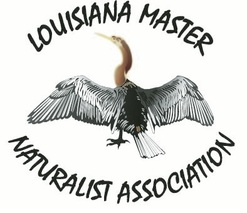
 RSS Feed
RSS Feed
